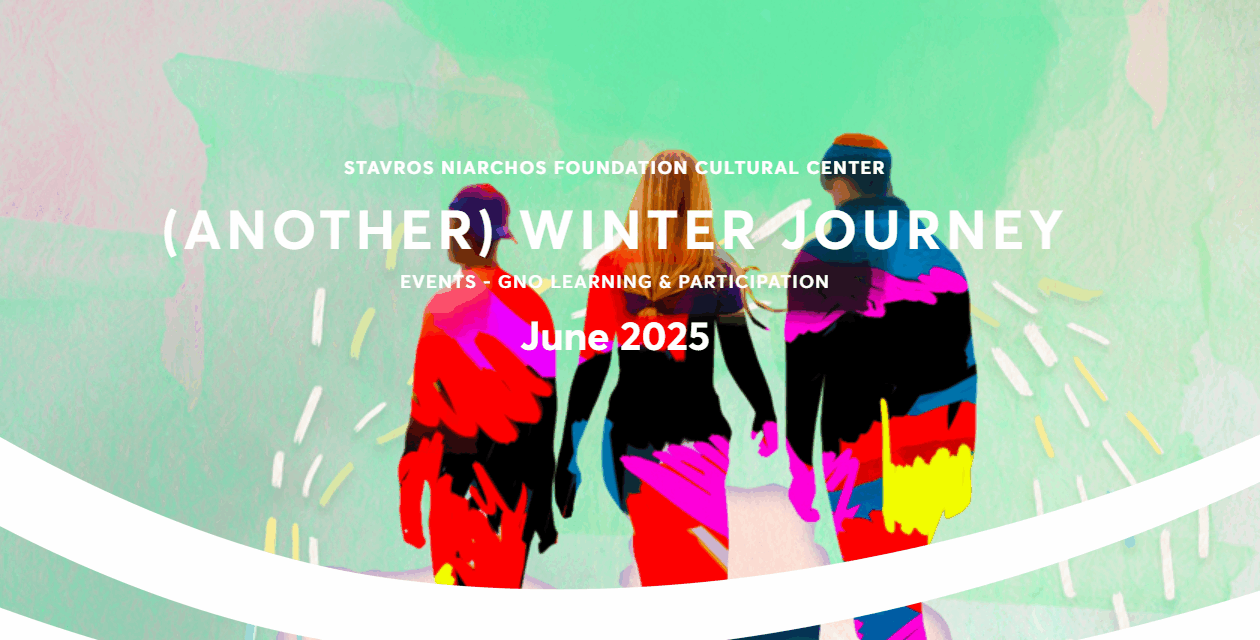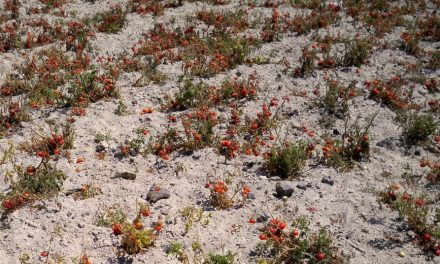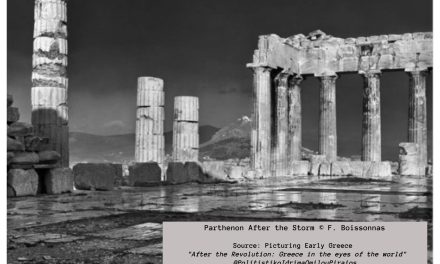Greek National Opera’s educational program Co-OPERAtive, the first intercultural youth opera hub in Europe, will complete its fifth year by presenting a new music theatre performance titled (Another) Winter Journey. The performance will feature a mixed group of Athenian teenagers and unaccompanied asylum-seeking minors who were involved in the educational program, alongside the GNO Intercultural Choir. The asylum-seeking minors arrived in Athens from countries such as Syria, Bangladesh, Ukraine, Egypt, Pakistan, to seek refuge from war, violence, extreme poverty, or oppressive regimes; along with teenagers from neighborhoods within Athens itself, they take the stage of to present their contemporary version Franz Schubert’s emblematic song cycle Winterreise.
Guided by Panos Iliopoulos’ musical adaptation and the directorial vision of Vasilis Vilaras, the performance explores the emotional landscape of adolescence, opening a dialogue with timeless human questions—fear, loneliness, hope, loss, first love, and transformation. The dramaturgy, shaped by Vilaras and Lemonia Gianniri, crafts a tapestry of personal testimonies, music, movement, and lived experiences. Rather than following a linear storyline, the performance unfolds as a poetic collage, where the adapted compositions of Schubert function as an inner engine of memory and change.
The stage becomes a meeting ground for different cultures and languages, as young participants narrate, sing, and dance their own lived stories. The GNO Intercultural Choir acts as a collective voice—sometimes urging, sometimes guiding, sometimes reflecting—always carrying a sense of hope. Movement direction is by Ilias Hatzigeorgiou and the performance is conducted by Markellos Chryssicos on the harpsichord.
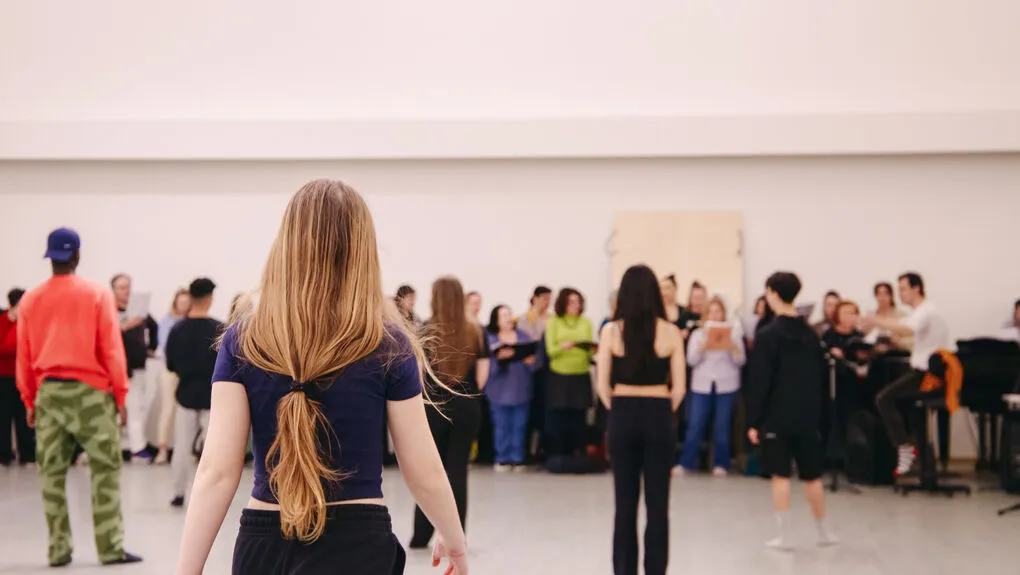
Winterreise (meaning Winter Journey), the song cycle for voice and piano written in 1828 by Franz Schubert is reimagined with a new structure, incorporating more voices and instruments to become a contemporary work, (Another) Winter Journey. Composer and harpsichordist Panos Iliopoulos, responsible for the adaptation of Schubert’s work, said in an interview with ANA-MPA: “Schubert’s song cycle Winterreise was, of course, not originally written to be performed by a choir, so one of the biggest challenges for me was finding ways to make that possible without resorting to oversimplification — and while always preserving the core and essence of Schubert’s music.
As Iliopoulos emphasized, in some of the songs, the original character and mood have been preserved intact, while in others he took more liberties — transforming the pieces, for example, by adding melodies or changing the atmosphere of the instrumental accompaniment. “In our arrangement, the songs are supported by an ensemble of three wind instruments, three strings, and keyboards, instead of the ‘lonely’ piano of the original — thus turning something intimate into something collective,” he explained.
How did young people from such diverse social and cultural backgrounds work together and find a shared voice for expression? In an interview with Efimerida ton Syntakton, the artists and workshop facilitators who guided the teens and are behind the production discuss the experience. Director Vasilis Vilaras recalls that greatest challenge during rehearsals was “bringing together teenagers coming from unstable sociopolitical conditions in their countries of origin and currently living in temporary accommodation facilities, alongside youths who were mostly born in Greece and experience a relatively greater sense of safety” and having them having inhabit the same universe, even if only for a short while. He points out that coordination was the key word for this entire endeavor.
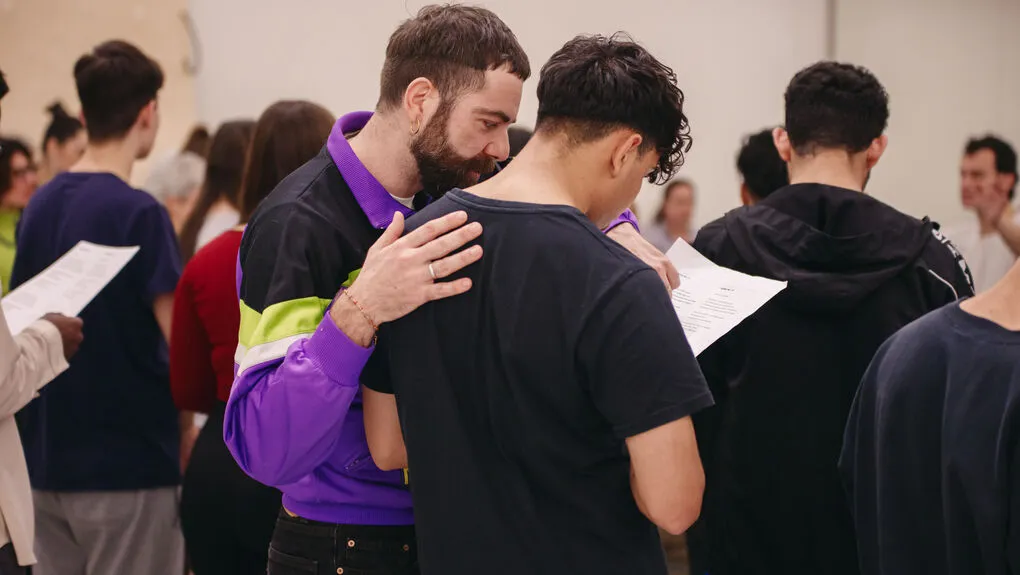
As far as the role that role did the teenagers play in shaping the narrative, Vilaras explains that although the initial dramaturgical concept was developed by the artistic team the teenagers enriched this concept by bringing in their own personal experiences through free-writing exercises and improvisation, which experiences were then incorporated directly into the text of the performance.
Answering question on how he structured this mosaic of experiences, languages, and music on stage, Vilaras states that “we used Schubert’s Winterreise as our foundation. Each song we hear is transformed on stage into an expression of adolescence:
The longing for love, the fear of death, the anxiety about the future, and the urgency of simply existing — all unfold before us through the body, the mind, the heart, and the resistance that defines this age.”
This production emerged from a months-long creative process involving teenagers from diverse cultural and social backgrounds, who met weekly in the GNO’s rehearsal spaces to share stories, experiment artistically, and ultimately co-create a unified performance.

(Another) Winter Journey is a performance that speaks to all of us: those who once were teenagers, those who still feel like teenagers, those raising them, and anyone who believes in the transformative power of art as a vehicle for inclusion and empathy.
The event will take place on Saturday, 7 June 2025, 19:30 in the Greek National Opera at the Stavros Niarchos Foundation Cultural Center. Admission will be free for the public with priority tickets, which will be distributed from June 2 at 12:00, exclusively through ticketservices.gr. The performance will be fully accessible providing an inclusive audiovisual experience for all audiences in collaboration with ATLAS E.P.
Co-OPERAtive – Intercultural Opera Hub for Teenagers
The intercultural opera hub for teenagers, Co-OPERAtive, is part of the GNO’s intercultural activities (along with the intercultural orchestra and the intercultural choir) and is the recipient of the 2019 Fedora European Educational Award. Since its inception, it has continued to grow—broadening its collaborations and deepening its commitment to bringing opera closer to younger generations, while celebrating the cultural diversity of contemporary Athens and promoting social inclusion. After four years of successful implementation, Co-OPERAtive returned in 2025 for a fifth season and renewed goals.
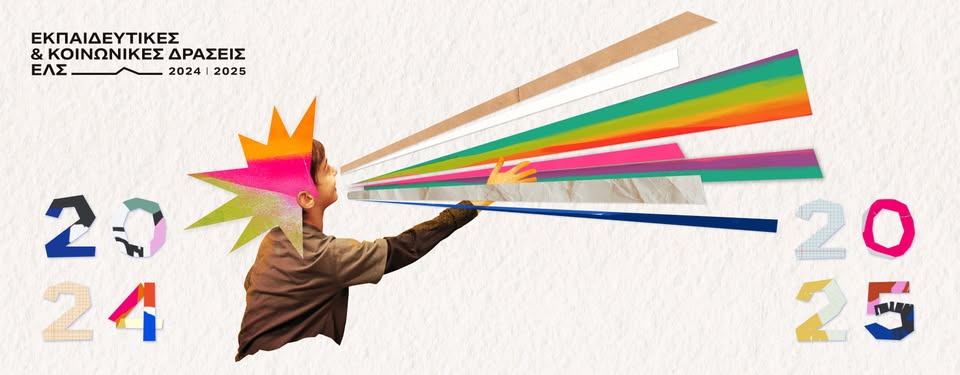
Focusing on the importance of intercultural exchange in artistic creation, the program annually brings together 30 young people of diverse nationalities—including Athenians and unaccompanied minor asylum seekers—for a series of weekly workshops led by distinguished artists in music, theater, and dance. These workshops culminate in the co-creation and public presentation of an original musical theater piece.
Throughout this creative process, participants are encouraged—under the guidance of renowned professionals—to develop a shared artistic language and collaborate on a work of their own. The final production is presented to the public at the Stavros Niarchos Hall of the National Opera, a prominent contemporary 1,400-seat opera venue.
This year’s Co-OPERAtive was implemented in close collaboration with Kinoniko EKAV, European Expression, Home Project, and Zeuxis.
I.L., with information from Greek National Opera, Efimerida ton Syntatkon and ANA-MPA
Read also from Greek News Agenda:
TAGS: ARTS | INTERCULTURAL | MUSIC | OPERA | REFUGEES

